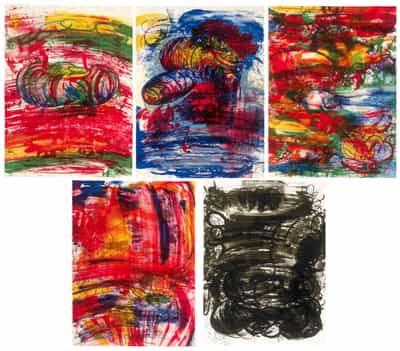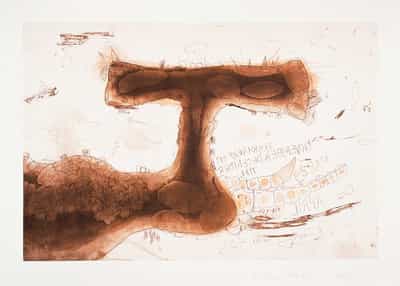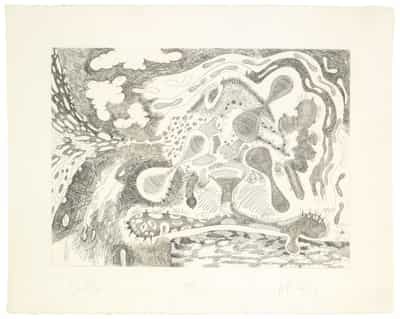B. 1949 After attending Trinity College in Hartford, Connecticut, Carroll Dunham moved to New York in the early 1970s. He began making abstract paintings with an aesthetic that sought inspiration not from the dominant minimalist ethos, but from surrealism, abstract expressionism, and pop-art. From them he gleaned a desire to tap into the subconscious, a need to mine the emotional power of color, and the freedom to assimilate aspects of popular culture into his work. He had his first one-person exhibition in New York at Artists Space in 1981 and his paintings have twice been featured in the Whitney Museum of American Art's Biennial Exhibition (1985 and 1995).
Dunham's references to art history are subtly filtered through memory and association. His high-key, often day-glo colors bring to mind cartoons and album covers of the 1960s, while the biomorphic forms that recur throughout his work — the wave, the mound, genitalia, tongue, and teeth — satisfy the subconscious urges of a child's doodling. As a result, Dunham's prints, like his paintings, function on many levels. A single polymorphous shape may simultaneously suggest the internal meanderings of body's structure, a topographical landscape, or an abstract maze. Dunham was invited by Bill Goldston to print a ULAE in 1984. He has since experimented with lithography, intaglio, wood engraving, screen printing and most recently digital printing.





